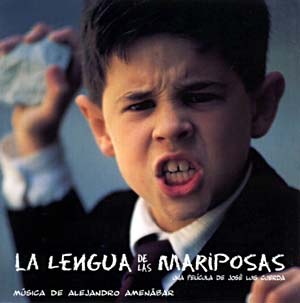 I’ve always had a soft spot for coming-of-age stories, so when friends kept raving about this Spanish gem, Butterfly’s Tongue ( with its original title La Lengua de las Mariposas ), I knew it would be right up my alley. There’s something timeless about movies belonging to the genre — that mixture of innocence, curiosity, and the slow realization that the world is bigger, messier, and sometimes more painful than we imagined. This film captures all of that — not just in a memorable way, but like a scent from childhood, it lingers long after the final frame.
I’ve always had a soft spot for coming-of-age stories, so when friends kept raving about this Spanish gem, Butterfly’s Tongue ( with its original title La Lengua de las Mariposas ), I knew it would be right up my alley. There’s something timeless about movies belonging to the genre — that mixture of innocence, curiosity, and the slow realization that the world is bigger, messier, and sometimes more painful than we imagined. This film captures all of that — not just in a memorable way, but like a scent from childhood, it lingers long after the final frame.
Butterfly’s Tongue instantly brought to mind several beloved coming-of-age classics. Its central bond between a curious child and a wise, gentle mentor echoes the emotional depth of Cinema Paradiso, with that same undercurrent of bittersweet nostalgia. The film’s child’s-eye view of a quietly shifting world reminded me of Kolya and My Life As a Dog. It also calls to mind Secrets of the Heart, not only in its tone and perspective but in the presence of a young, beautiful protagonist whose expressive eyes and quiet sensitivity draw the viewer in and hold the story’s emotional center.
Michael Thomson summed it perfectly in his BBC review from 26 July 2000: “Manuel Lozano, as the seven-year-old Moncho, is particularly powerful when he has to do more than just look anxious and cute (his cuteness loads the dice too much).
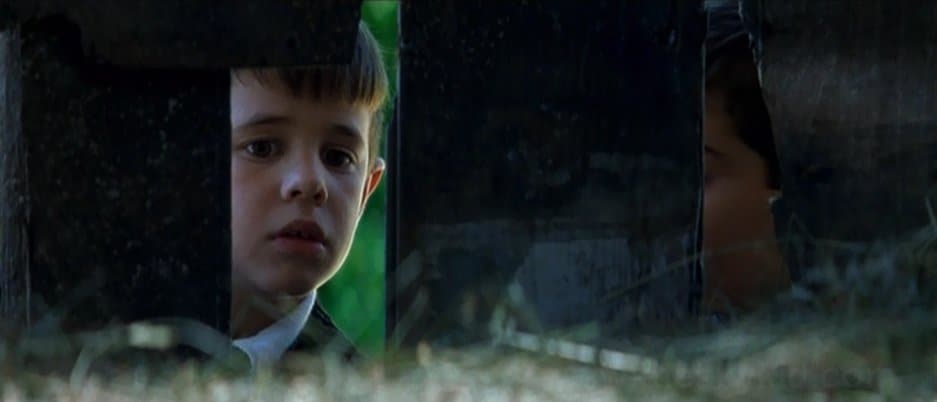
Set in a quiet Galician village in the 1930s, the film follows a gentle little boy named Moncho — played by the incredible Manuel Lozano. Moncho is shy, sweet, and delicate; his mother lovingly calls him “sparrow.” Just that nickname alone reveals the film’s emotional tone: tender, intimate, and full of heart.
Moncho, who suffers from asthma, is filled with dread the night before his first day of school — terrified by rumors that his new teacher might beat him. But everything changes once he meets Don Gregorio (Fernando Fernán Gómez), the teacher assigned to his class. Don Gregorio is kind and respectful, earning his students’ attention without raising his voice or hand. As Moncho begins to feel safe, his world starts to open up. A deep bond forms between the boy and his teacher, and from that point on, the film gently follows their relationship and Moncho’s early steps into the complexities of growing up.
The bond between Moncho and Don Gregorio stayed with me. Their scenes felt so genuine that, at times, I felt like I was the one sitting in that classroom — quietly absorbing lessons about life, books, and values. That’s something I love about well-executed coming-of-age films: they don’t just show someone growing up; they let you grow alongside them.
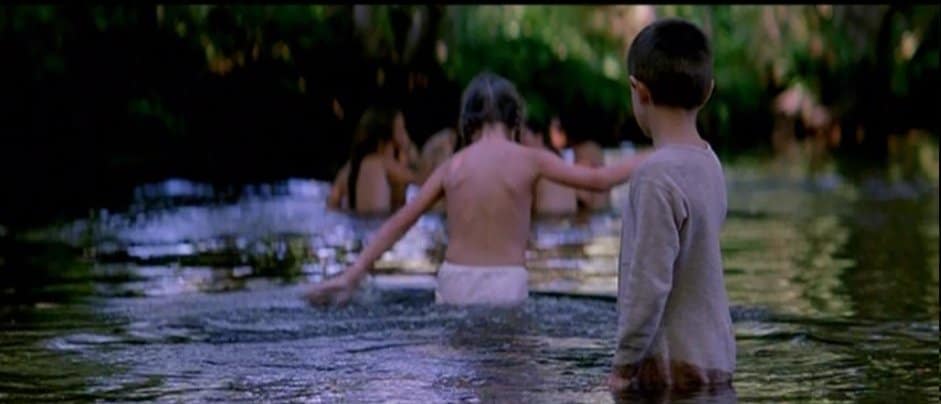
Soon after his first days at school, Moncho has an experience that marks a step toward growing up—he and an older schoolmate secretly watch a couple making love. Until this moment, the film comes across as a gentle, almost nostalgic look at childhood, leading the viewer to expect a simple, idealized coming-of-age story. But the Spanish director quietly shifts this expectation, showing that childhood is not always the sweet, perfect time often portrayed in some American films. From there, the film gradually builds emotional tension, layer by layer, leading to a powerful and heart-wrenching finale.
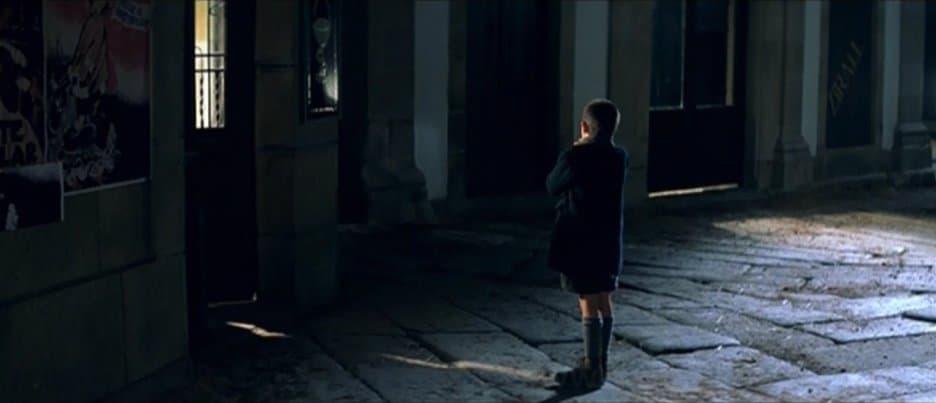
The set and costume design of Butterfly’s Tongue are beautifully detailed, anchoring us in 1930s Galicia. The simple schoolroom, with its worn desks and modest furnishings, feels true to the era. Meanwhile, the lush forest where Don Gregorio teaches Moncho about butterflies bursts with tall trees and soft sunlight, creating a vivid sense of wonder. These elements bring the story to life, making the time and place feel real, not just a faded memory.
The director cast Lozano from among 1,500 auditioning children, calling him “a genius of interpretation.” Watching the film, I agree. So much of Moncho’s coming-of-age journey is told through his eyes — eyes that reflect fear, wonder, defiance, and ultimately, betrayal. In fact, in many of the Spanish films I’ve seen, it’s the eyes of the protagonists — not the plot — that tell the true story.
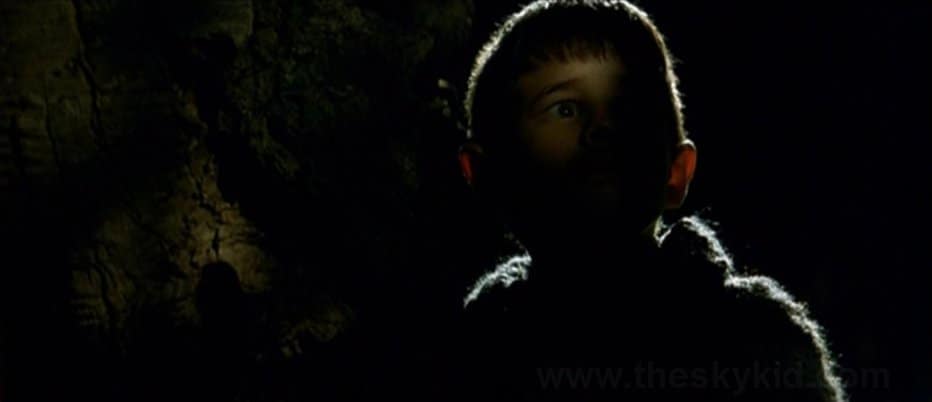
When I first saw the film back in the early 2000s, I was moved by its tenderness, its understated wisdom, and the tragic sweep of history that slowly but inevitably intrudes upon a boy’s world. Watching it again now, nearly two decades later, I’m struck by how much more it gives — and how deeply it still affects me. It’s a unique coming-of-age story that unfolds with quiet warmth, only to deliver a sudden, profound heartbreak that mirrors life itself. If you appreciate cinema that explores the delicate balance of innocence and disillusionment with emotional depth, I highly recommend it.
 Title: La Lengua de las Mariposas
Title: La Lengua de las Mariposas
Director: José Luis Cuerda
Release year: 1999, Canal+ España
Cast : Fernando Fernan Gomez, Manuel Lozano, Uxia Blanco, Gonzalo Uriarte, Alexis de los Santos, Jesus Castejon, Guillermo Toledo, Elena Fernandez, Tamar Novas, Tatan and others
This review is included in the book Coming Of Age Movies: Growing Up On Screen